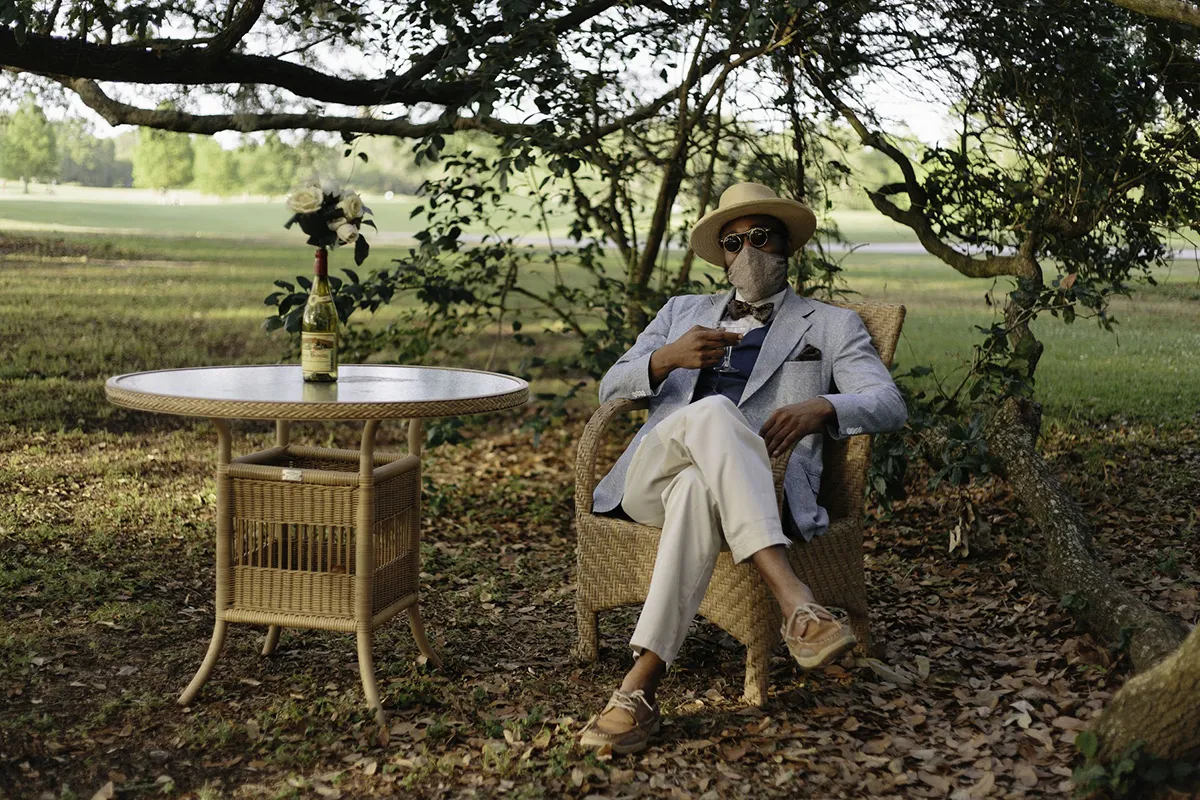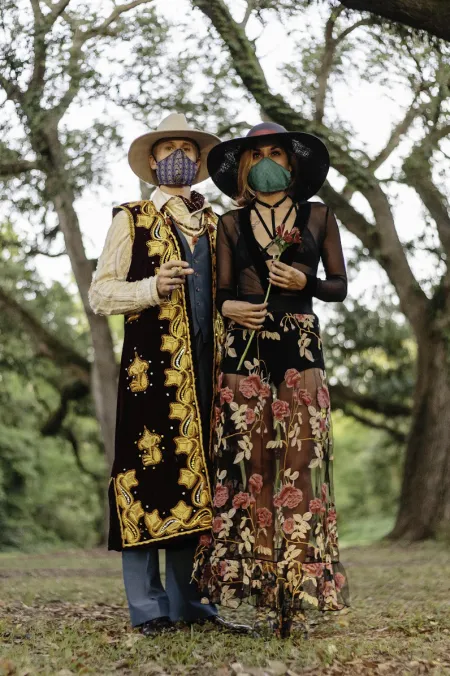The triangle created by Tremé, the French Quarter, and the Lower Ninth Ward encompasses the setting of much of New Orleans’ history — from the height of its artistic improvisation in its music and cuisine to the depths of despair in its hurricane-induced flooding and devastation.
On most nights, you could have found Edward Wycliff ’11 and his sewing machine right in the middle of it all at an open-air night market, home to sculptors, jewelers, painters, and 40 other rotating artists.
For the last five years, Wycliff had been teaching people in southern Africa how to turn their local fabric into bow ties that he then sold, along with his own creations, in the market, usually until midnight or 1 a.m. But then COVID-19 closed the market in mid-March.
“It’s a strong community of about 100 artists, some of the better artists in New Orleans creating original art, and then we all lost our spaces overnight,” he said.
Wycliff had just been invited to sell his work at the New Orleans Jazz Festival, which brings in half a million people and a $300 million economic impact across two weekends at the end of April.
“I pumped all of our funding into inventory for this event, where it’s possible to sell tens of thousands of dollars’ worth of merchandise,” he said. So, when the festival also fell victim to COVID-19, “I was basically broke,” said Wycliff. “I had no venue to sell all the inventory that I had, and I was wondering what the heck I could do to keep the business moving and pay my rent.”
He found the answer in two characteristics of the Crescent City: “New Orleans is a hustler and an artist town,” he said. “Everybody down here is a hustler.”
So, when life hands you a pandemic, you make masks.

